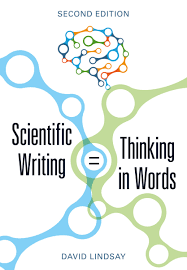
The Art of Scientific Writing
Scientific writing is a unique form of communication that plays a crucial role in the dissemination of knowledge and the advancement of research. Whether you are a seasoned scientist or a budding researcher, mastering the art of scientific writing is essential for effectively sharing your findings with the world.
Clarity and Precision
One of the key principles of scientific writing is clarity. Your writing should be clear, concise, and precise to ensure that your message is easily understood by your intended audience. Avoid jargon and unnecessary technical language that may confuse readers.
Structure and Organization
A well-structured scientific paper follows a logical flow, starting with an introduction that outlines the research question and objectives, followed by a literature review, methodology, results, discussion, and conclusion. Each section should build upon the previous one to form a cohesive narrative.
Evidence-Based Writing
Scientific writing is grounded in evidence and data. Ensure that you support your arguments and conclusions with relevant research findings, experiments, or observations. Cite your sources accurately using a consistent referencing style such as APA or MLA.
Peer Review and Revision
Before submitting your work for publication, undergo peer review to receive feedback from experts in your field. Use their comments to revise and refine your manuscript for clarity, accuracy, and coherence. Revising is an integral part of the scientific writing process.
Conclusion
In conclusion, scientific writing is not just about conveying information; it’s about creating a compelling narrative that engages readers and contributes to the body of knowledge in your field. By honing your skills in clarity, structure, evidence-based writing, peer review, and revision, you can elevate your scientific writing to new heights.
Illustrative Samples of Scientific Writing
Understanding the Scientific Method in Written Communication
4. Crafting Quality Content in Science Writing
- What are the main elements of scientific writing?
- What is an example of scientific writing?
- What is the scientific method of writing?
- How do you write science writing?
What are the main elements of scientific writing?
In scientific writing, the main elements encompass clarity, precision, structure, evidence-based content, and thorough revision. Clarity is essential to ensure that the message is easily understood by readers. Precision involves using concise and accurate language to convey complex ideas effectively. A well-structured scientific paper follows a logical flow from introduction to conclusion, with each section contributing to a cohesive narrative. Evidence-based writing requires supporting arguments with relevant research findings and data. Finally, peer review and revision are crucial steps to refine the manuscript for accuracy and coherence before publication. Mastering these key elements is fundamental to producing high-quality scientific writing that informs and engages its audience effectively.
What is an example of scientific writing?
Scientific writing encompasses a wide range of formats, from research papers and lab reports to grant proposals and conference abstracts. An example of scientific writing could be a published research article in a peer-reviewed journal that presents a study’s methodology, results, and conclusions in a clear and structured manner. Such articles follow a standard format, including an abstract, introduction, methods, results, discussion, and references sections. These exemplars of scientific writing adhere to strict guidelines for accuracy, objectivity, and citation of sources to ensure credibility within the scientific community.
What is the scientific method of writing?
The scientific method of writing is a systematic approach that scientists and researchers use to communicate their findings in a clear and structured manner. It involves following a logical sequence of steps, starting with defining a research question or hypothesis, conducting experiments or studies to gather data, analysing the results, and drawing conclusions based on evidence. The scientific method of writing emphasises precision, objectivity, and transparency in presenting information to ensure that other researchers can replicate and verify the results. By adhering to this method, writers can contribute effectively to the advancement of knowledge in their respective fields through rigorous and well-documented research communication.
How do you write science writing?
When it comes to science writing, the process involves a structured approach that combines clarity, precision, and evidence-based reasoning. To write effective science content, one must begin by clearly defining the research question or topic of interest. Next, a thorough review of existing literature is essential to provide context and support for the study. The methodology section should outline the procedures and techniques used in the research, followed by presenting results and analysis in a logical manner. Finally, drawing conclusions based on the findings and discussing their implications are crucial aspects of science writing. By following these steps and incorporating accurate data and references, one can craft engaging and informative scientific content that contributes meaningfully to the field.






